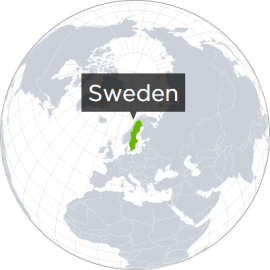The long-term trend of improving employment has been jeopardized by the choices made in response to COVID-19. The response to the pandemic has had a profound impact on jobs, with levels of unemployment rising in all regions of the world in the last year. Close to 6.5% of the world’s working age population were unemployed in 2020. As much as 93% of the world’s workers resided in countries with some form of workplace closure measures in place at the start of 2021. In total, almost 9% of global working hours were lost in 2020, equivalent to some 255 million full-time jobs. This makes working-hour losses in 2020 approximately four times greater than during the global financial crisis in 2009.
Economic Quality Spotlight: Why employment is the ultimate way to prosperity

Economic Quality has seen a major deterioration in all regions, as the economic impact of the choices made to respond to COVID-19 continue to be felt, with the sharpest decline seen in North America. Unemployment rose sharply across the world because of lockdowns, with 158 countries (and all regions) seeing employment rates deteriorate between 2019 and 2020. In the United States, the unemployment rate more than doubled, from 3.7% to 8.3%. And in the MENA region, the Gulf states saw the most significant rises.
Economic Quality has seen a major deterioration in all regions, as the economic impact of the choices made to respond to COVID-19 continue to be felt, with the sharpest decline seen in North America. Unemployment rose sharply across the world because of lockdowns, with 158 countries (and all regions) seeing employment rates deteriorate between 2019 and 2020. In the United States, the unemployment rate more than doubled, from 3.7% to 8.3%. And in the MENA region, the Gulf states saw the most significant rises.
As elsewhere, the decisions made in response to the pandemic have impacted employment in the UK for example. Labour market impacts have been felt, with between 35% and 41% of people previously employed in each of the UK’s nations and regions experiencing a negative change in their employment status, from a decline in wages and hours to being furloughed or losing their jobs altogether.
Rising levels of unemployment present a significant obstacle to prosperity. In addition to providing individuals with an all-important income, work offers stability, security, and purpose, as well as the agency to take charge of one’s life. People in work are predictably more economically active, providing a string of ancillary benefits in terms of the goods and services they consume, as well as the contribution to public spending they make through the taxes they pay on their incomes. Accordingly, maximising the number of people in work is a key task in forging open and resilient economies, and the prosperity they underpin.
Prior to the pandemic, participation in the labour market varied considerably across the world. In Western Europe, for example, the labour force participation rate stands at 75%, whereas in the Middle East and North Africa it is reported as being at just over 50%. The disparity is driven by the limited number of women in work, with only 24% of women participating in the labour market in MENA compared to 70% for Western Europe. Over the past year, ten nations report female participation in the labour market at over 80%, with Nepal the highest at 85%, and six nations report a rate of less than 20%, with Yemen the lowest at 6%.
As the world emerges from the shadow of the pandemic, we are only beginning to understand the implications of more than a year in lockdown. However, the pattern uncovered in the UK has been replicated around the world, with the most vulnerable people amongst the most impacted. With so many people’s jobs adversely impacted by the choices made by governments in response to COVID-19, around the world leaders must now respond swiftly to ensure people are able to return to work safely and contribute to the economic recovery — as well as getting more women into the workplace
Did
you know?
Almost 9% of global working hours were lost in 2020 as a result of the COVID-19 pandemic, equivalent to some 255 million full-time jobs. This makes working-hour losses in 2020 approximately four times greater than during the global financial crisis in 2009.





